Ashley likes nothing better than tussling with another dog. In this case, with Roxie.
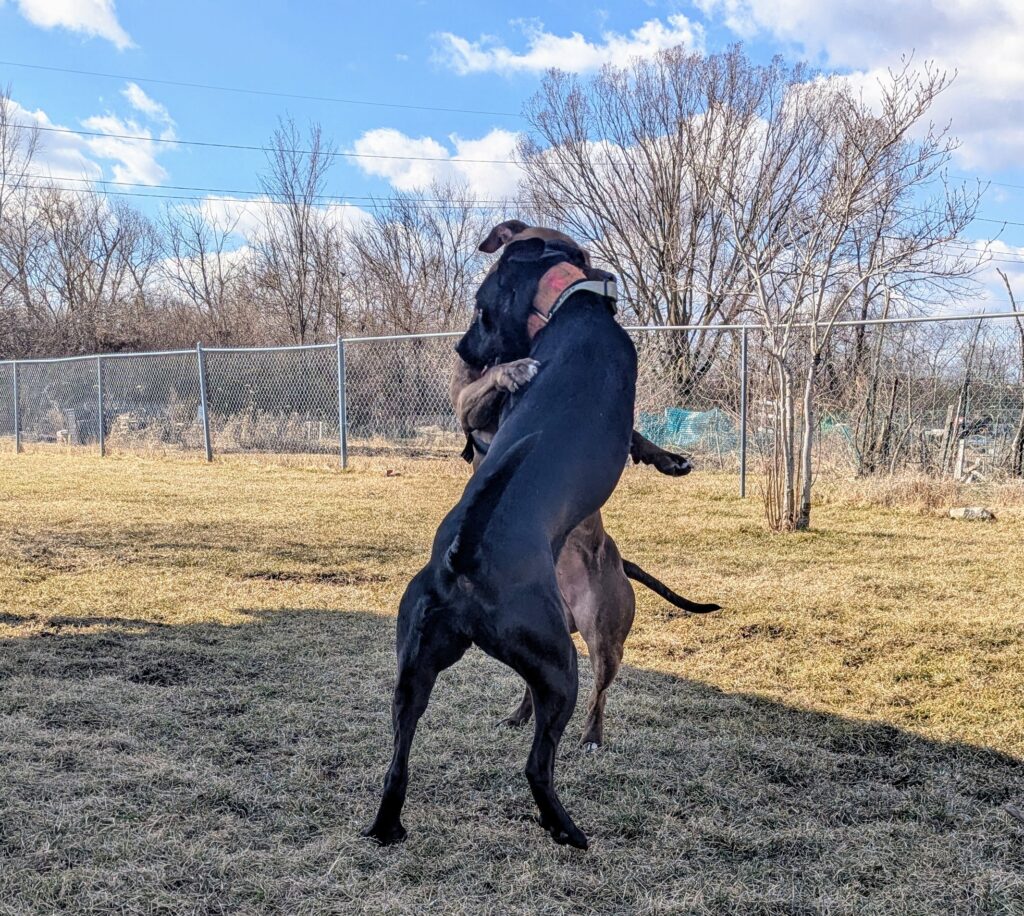
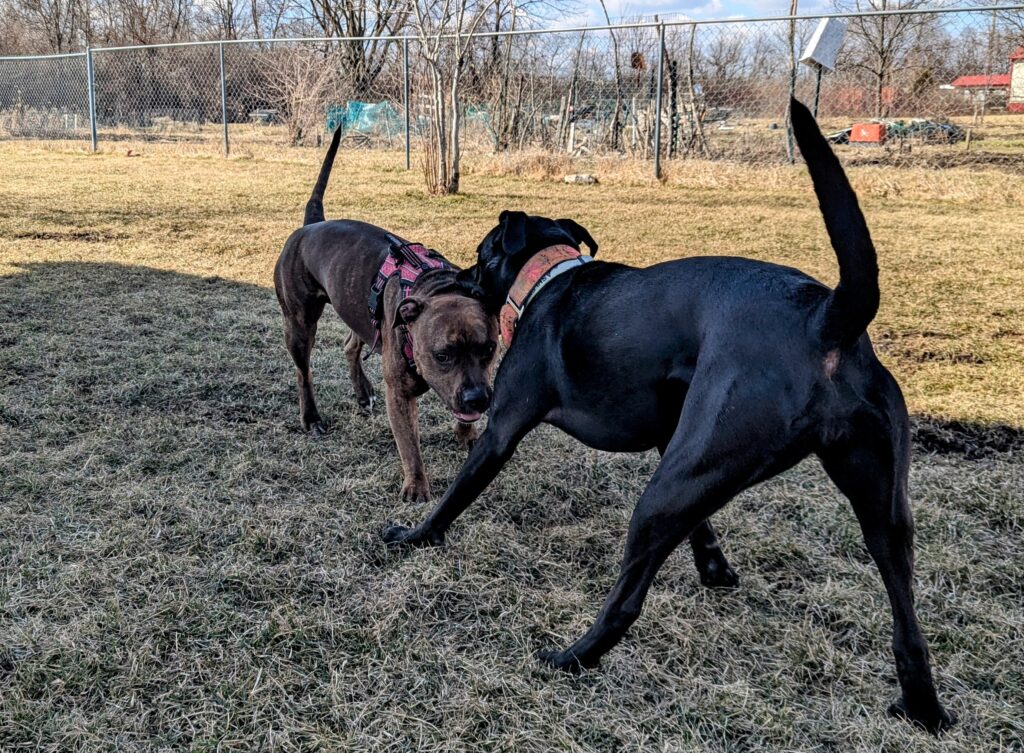

I’d like an app that could take my various social media feeds, the RSS feeds I used to follow (until my feed reader broke), and the various news sources that I subscribe to, and find all the articles that I really want to read, and present them to me in a useful order.
Of course it needs to do a lot more than that. It should watch me read them, pay attention to which posts I linger on, which ones I follow internal links in, etc., and try to learn what I actually want to read. (And then give me more of that stuff in the future.)
It would also be nice if it noticed when I read something by a new person I don’t follow (because it was boosted by someone I do follow), and consider following that person as well.
And by “in a useful order,” I mean the AI should understand which articles are full of background information versus covering the latest breaking news, and present the background information first—unless it’s background information that I already know. In that latter case, it should just offer a link to the background information, in case I feel like I need a refresher. It should also present the information grouped by topic (so, news first, then economics/business news, then science news, then the very narrow sorts of cultural news that I want to read).
On my way to UI Con.
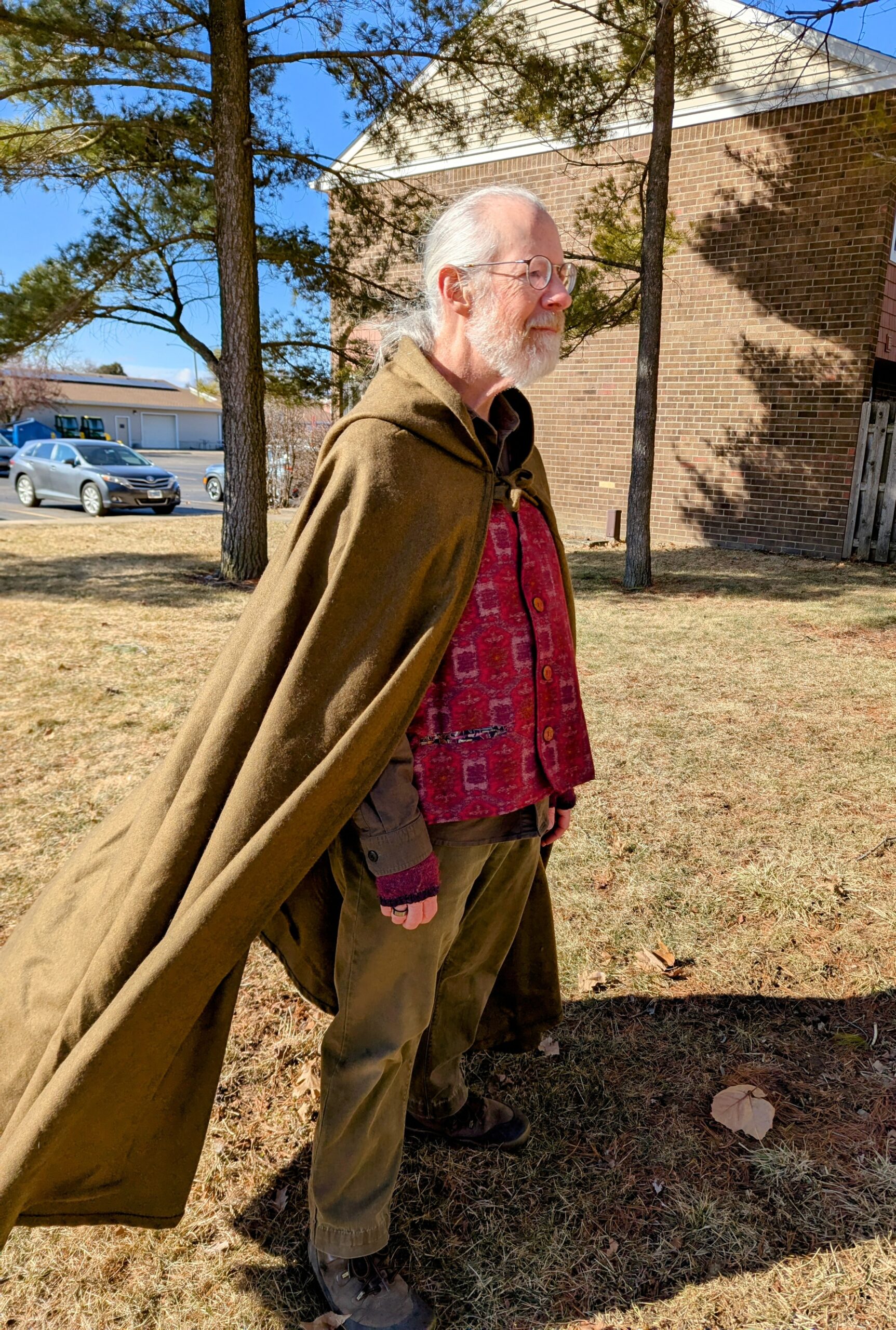
This time not only did Ashley find her place in the sun, I found mine as well. 🐕
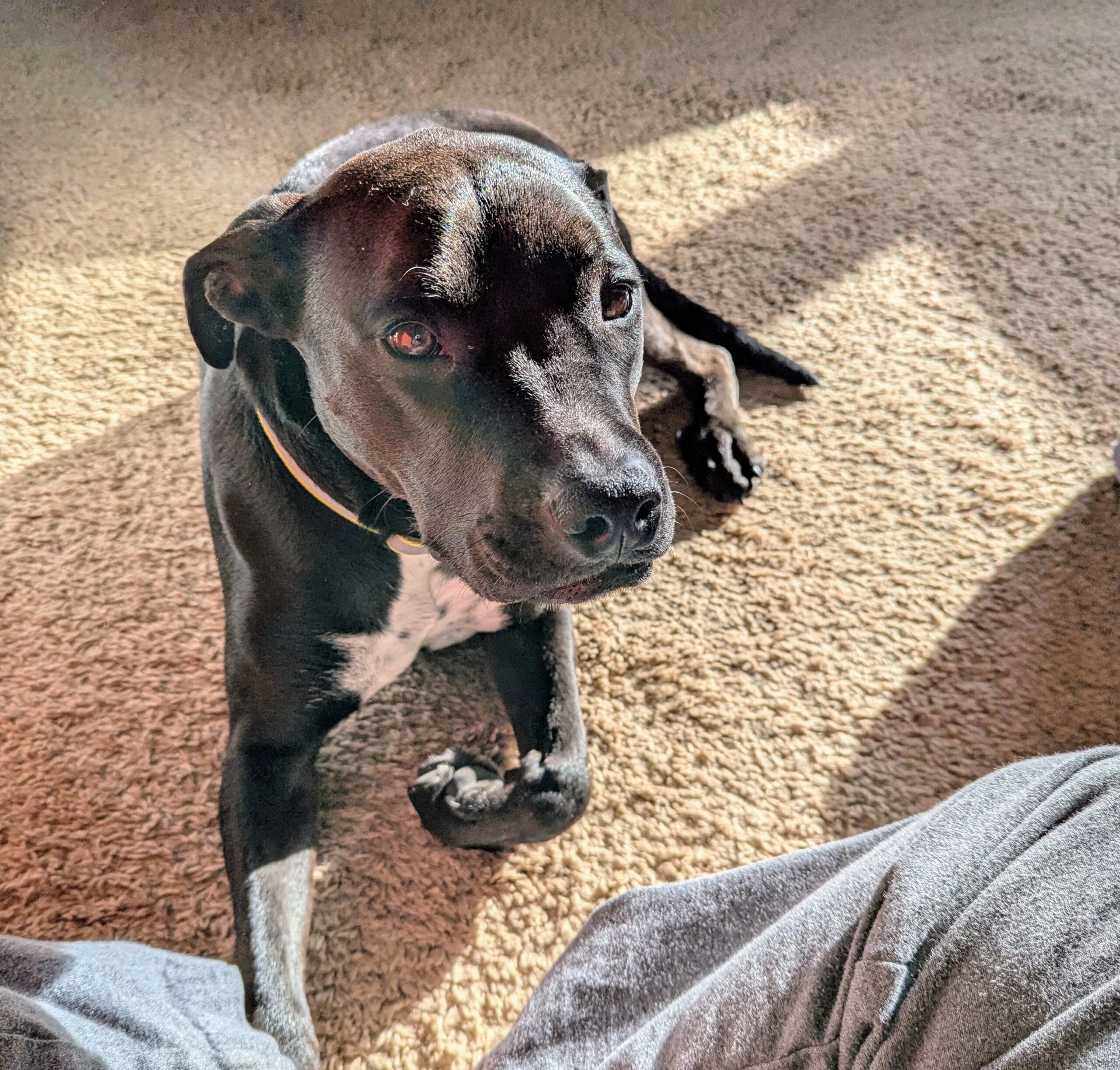
For years now I’ve been fixing the same little feast for valentine’s day: rock Cornish game hen, Uncle Phil’s long grain and wild rice, and flourless chocolate cake.
It’s inspired by the very first meal I cooked for Jackie, just a few days after we started dating.
This year I made numerous mistakes in timing and measuring—kinda weird, since I slept so well last night. Fortunately, a modest amount of scrambling and fixing managed to make everything come out delicious!
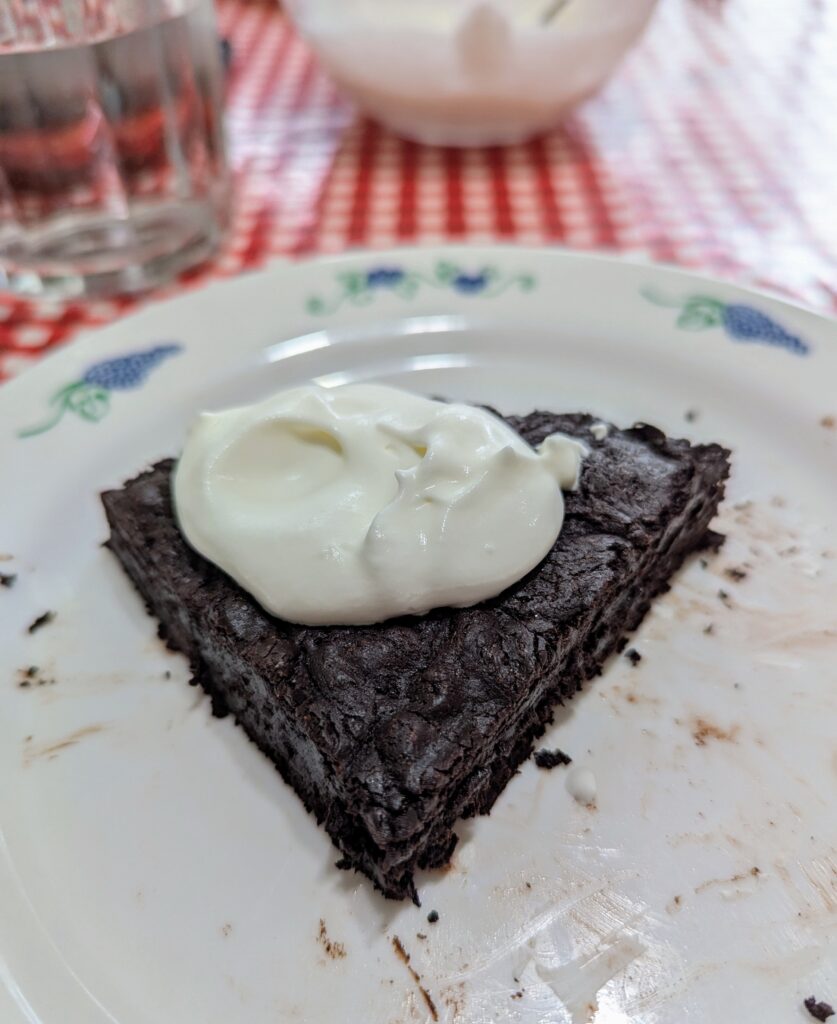
Several times in my adult life I have suffered a bout of very poor sleep, usually due to life stress. One of those times, six years ago, coincided with the Oura ring becoming available. So I bought one.
Buying a ring, of course, doesn’t help you sleep better. The Oura ring just offers metrics on your sleep. It’s up to you to make sensible use of that data.
Besides buying the ring, I went down the rabbit hole of reading about sleep. In particular, I read the book Why We Sleep by Matthew Walker. Based on that book, and a lot of reading of internet articles on sleep, I started trying to get 8 hours of sleep a night, as measured by my Oura ring.
Of course that’s not what the “8 hours of sleep” number ever was. The number was always a “time in bed” number, assuming that you spent an average fraction of that time actually asleep. (Some people might actually need 8 hours of actual sleep per night, but that’s not what the number referred to.)
I conducted various experiments (which is what the Oura ring makes possible), but about the only way I could get 8 hours of actual sleep (besides being really, really tired) was to spend 10 or more hours in bed. Rather pleasant on the right sort of day when you’re in the right sort of mood, but not really a practical lifestyle, even for someone like me who doesn’t need to go work a regular job any more.
I did the sensible thing, which was to mostly not worry about it, and just try to get plenty of sleep. And I did okay. My average sleep score from my Oura ring over the 6+ years I’ve had it has been 84. (That’s one tick below the cut-off for “excellent” sleep.)
Just lately though, I’ve made another tweak to my “sensible sleep” strategy (which will no doubt seem extremely obvious to anyone who has never had an extended period of very bad sleep): I quit trying to extend my time in bed in an effort to try and get 7 or 8 hours of actual sleep.
Like all sensible people, I’m back to just going to bed when I feel sleepy, and getting up when I wake up feeling refreshed.
My Oura ring likes the results:


In part this was due to hearing an interview with the author of How to Sleep Like a Caveman by Merijn van de Laar. He reports that Hadza people spend a very typical amount of time in bed, but only spend a little over six and a half hours of that time asleep.
Of course the smart thing to do is to go entirely by feel: If you wake up feeling refreshed, you’re probably getting enough sleep. If you get sleepy during the day, maybe take a nap.
The Oura ring is for when that simple, sensible strategy doesn’t do the trick.